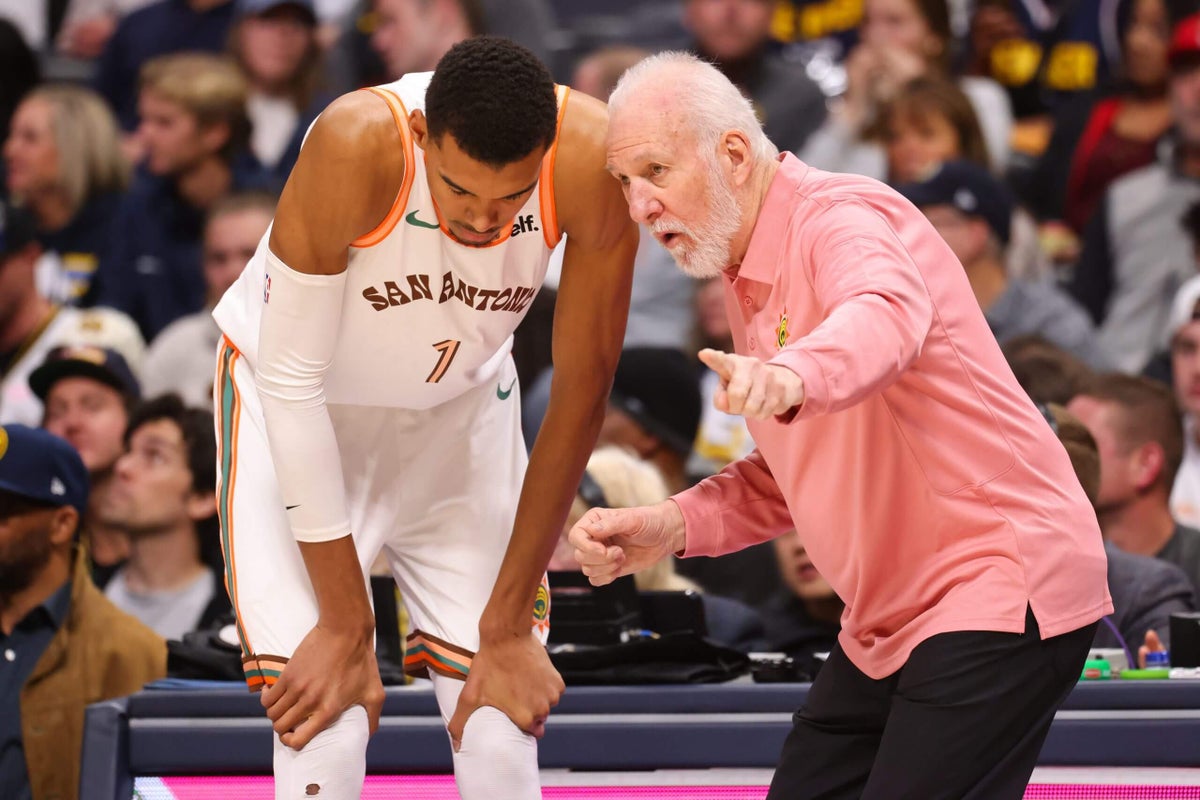

Editor’s Note: This story is part of Peak, The Athletic’s new desk covering leadership, personal development and success through the lens of sports. Peak aims to connect readers to ideas they can implement in their own personal and professional lives. Follow Peak here.
Gregg Popovich stepped down from his coaching duties on Friday, moving into a full-time role in the team’s front office.
Advertisement
In 29 seasons, Popovich guided the Spurs to five NBA championships, won a record 1,466 games in the regular season and left a legacy as one of the best leaders in NBA history, a culture builder who transformed San Antonio into a model franchise.
These are four of our favorite Popovich leadership lessons:
Notice — and reward — the little things
DerMarr Johnson played in just five games for the Spurs during the 2007-08 season. He was a journeyman, and in one of his first games, he entered in the second quarter, scored seven or eight points, and then didn’t play again.
But after the game, Popovich delivered a message to the team: They won that night because of Johnson’s minutes in the second quarter.
“He gave me that recognition,” Johnson said.
Popovich was famously blunt and direct. He could also be warm, encouraging the players at the bottom of the roster. Before Keith Langford played his first game, Popovich reassured him: “Just be yourself, Keith.” When the Spurs acquired Australian center Andrew Gaze in 1999, Popovich made it clear why.
“Pop liked the joy with which I played,” Gaze said. “He liked the way I interacted with my teammates. He liked the way I was around to watch other games. It wasn’t the jump shot or the points. It was almost like he was watching these other things that were just as important.”
Don’t be afraid of the road less traveled
Popovich’s first head-coaching job came at Pomona-Pitzer, now Pomona College, a Division III program in Southern California. He went 2-22 his first year and had five losing seasons in his first seven years. His career wasn’t going anywhere, so he did something radical: In his late 30s, he took a sabbatical in Lawrence, Kan., where he spent a school year shadowing Kansas coach Larry Brown.
Popovich’s free-spirited wisdom caught the attention of the other coaches, including a young assistant named R.C. Buford. Popovich, then in his late 30s, soaked up knowledge from Brown, competed in intramural basketball and offered life-changing advice to a graduate assistant named Bill Bayno.
Advertisement
“We were all young,” Bayno recalled. “I was 23. There were beautiful girls on campus. … So we would all go out and party, and we would talk about marriage, and I remember Pop giving me this long lecture on marriage.
“He said, ‘Bayno, I’m going to give you some advice. Before you get married, I don’t care how much in love you are with the girl, you’ve got to interview five married couples. Interview a newlywed couple. Interview a couple that’s been married for two to three years; for seven to 10 years; for 15 or 20 years and for 25 or more years.’”
Bayno understood the lesson: Learn different perspectives. Do your homework. Then go for it.
Hold people accountable and push them to their personal best
Popovich wasn’t afraid to lay into players, but the way he treated everyone the same stuck with many.
Consider this story from Pops Mensah-Bonsu, who played just three games for the Spurs in 2008-09.
“I was playing in a game, and I messed up a defensive assignment,” Mensah-Bonsu said. “He takes me out of the game, yells at me and sends me to the end of the bench. …The next quarter, Tim Duncan literally makes the same mistake. I was assuming that Pop would just leave him in. But he subs him out and yells at Tim Duncan the exact same way and sends him to the bench right next to me.
“Timmy’s response summed up their relationship and how the Spurs have been successful for so many years. He looked at him and said, ‘You’re right, Coach,’ and sat right down next to me on the bench. That summed up my whole experience in San Antonio.”
Love and trust your people
On one of his first road trips, former Spur James White was invited to sit next to Popovich. White was nervous. What were they going to talk about?
“But then he started talking to me about my family, my background, asking questions about who I am as a person,” White said.
Advertisement
Popovich loved taking players out for meals. He also liked handing out books, once giving Mensah-Bonsu a copy of Ta-Nehisi Coates’ book, “Between the World and Me.”
“It’s powerful because it came from him,” Mensah-Bonsu said. “It’s not something you open one time. It’s something I’m going to refer to for the rest of my life.”
When things weren’t going right, Popovich would often call a timeout and say nothing at all.
“He’s the only coach that I ever played for,” former Spurs forward Tony Massenburg said, “that when things weren’t going right in the game, he’d call a timeout and just say, ‘You guys figure it out. You know what’s going on out there. You guys fix it.’”
Shawnelle Scott played a total of 27 games for Popovich. And yet, a few years ago, this is what he said:
“I can’t wait to see him again and just tell him, ‘Thank you. Thank you for giving me the mindset. Thanks for letting me be there and consume all this basketball knowledge and all these really quality characteristics.’ That’s the best part. You talk about two master’s degrees later, man. The whole Pop mindset is you’re striving for excellence. You have to try to do your absolute best. You’re talking about two master’s degrees later. I don’t know if I would have had the mindset to do that if I didn’t play for the Spurs for that one year.”
For a deeper dive into Popovich’s unique leadership style, read this story from Jason Quick
(Photo by Justin Tafoya / Getty Images)
This news was originally published on this post .




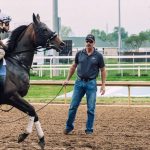
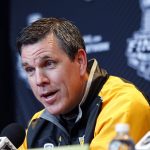
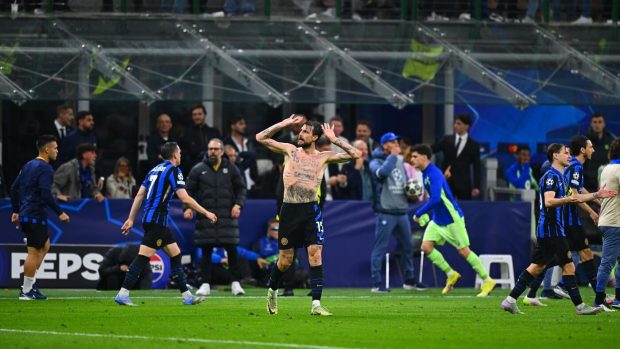

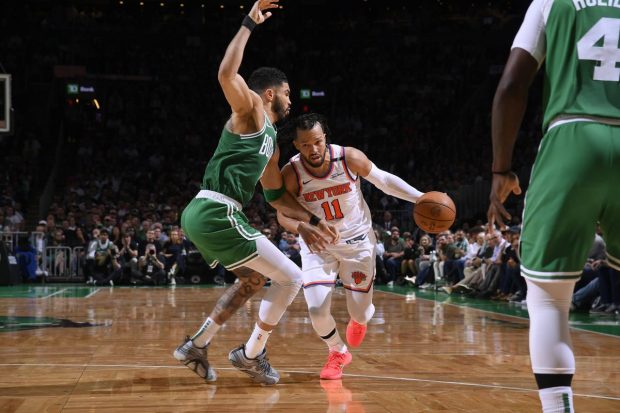
Be the first to leave a comment